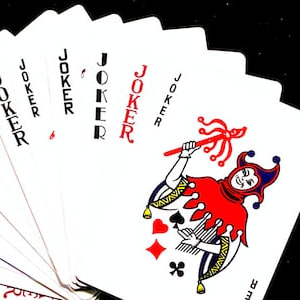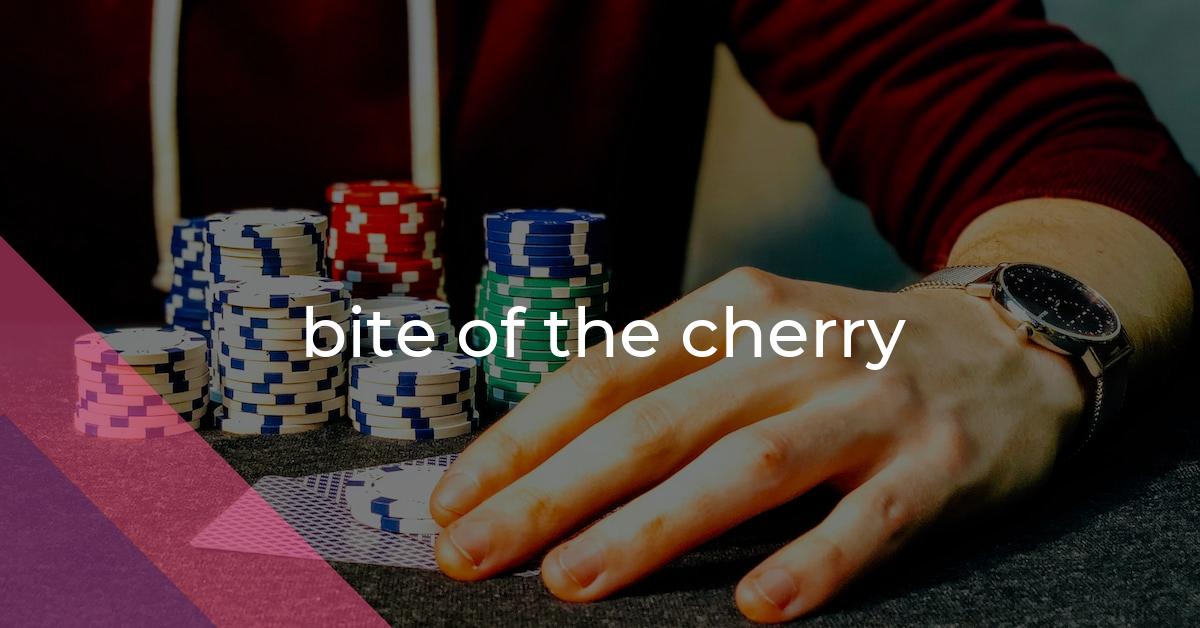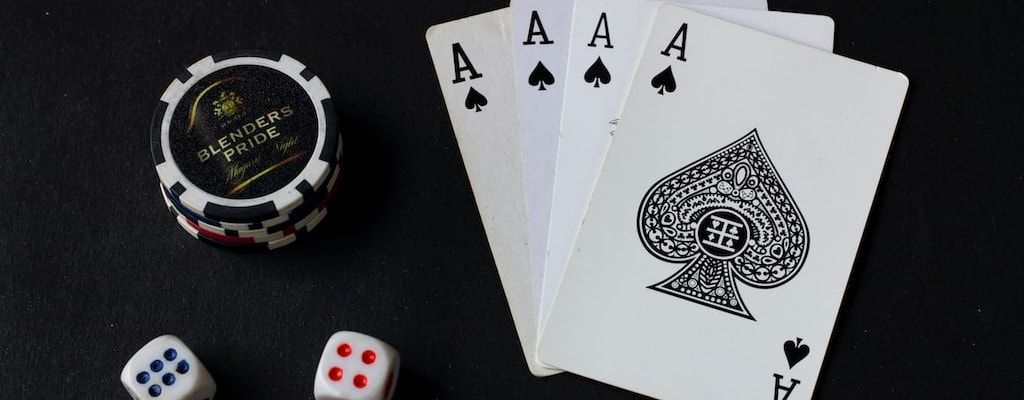bite of the cherry: Idiom Meaning and Origin
What does ‘bite of the cherry’ mean?
The idiom "bite of the cherry" means the opportunity to do or try something for the first time. It often refers to a situation where someone gets a chance to experience or have a go at something they have been waiting for.

Idiom Explorer
The idiom "jump at the chance" means to eagerly accept or take advantage of an opportunity without hesitation.
The idiom "have a bite" means to eat a small amount of food, often as a snack or to taste something. It implies taking a quick break to satisfy hunger or try a small portion of something.
The idiom "give something a whirl" means to try or attempt something, usually for the first time, in order to see if it is enjoyable or successful.
The idiom "forbidden fruit" refers to something that is desired but prohibited or off-limits, often due to moral or societal reasons.
The idiom "eat an elephant one bite at a time" means tackling a large or overwhelming task by breaking it down into smaller, more manageable parts.
The idiom "dip one's toe in" means to cautiously try or experience something new or unfamiliar, often with a small or initial effort. It implies a sense of hesitancy or cautiousness before fully committing to or engaging in an activity or situation.
The idiom "dip a toe into" means to try or experience something new or unfamiliar in a cautious or hesitant manner.
The idiom "cut one's teeth" means to gain initial experience or develop foundational skills in a particular field or activity. It comes from the literal act of a baby cutting their first teeth, which is a milestone indicating growth and development.
The idiom "chomp at the bit" means to be eagerly impatient or restless to do something. It is derived from the behavior of horses when they bite down on the bit in their mouth due to excitement or impatience.
The idiom "chew off" means to bite or tear a piece of something using the teeth. It can also be used metaphorically to describe the act of freeing oneself from a difficult or challenging situation. Additionally, it can refer to incessantly talking or complaining about a topic.
Unveiling the Forbidden Flavor
The idiom "bite of the cherry" is a commonly used expression in the English language. It has several variations including "bite at the cherry" or "second bite of the cherry." The origin of this idiom can be traced back to the mid-20th century, although its precise origins are uncertain. Nevertheless, the idiom has gained widespread usage and can be found in various contexts.
One notable fact about the idiom "bite of the cherry" is its association with missed opportunities or second chances. The cherry symbolizes a desirable or advantageous situation, and to have a bite at or of the cherry indicates a chance to partake in this situation. However, the idiom implies that this chance is limited, and if one misses it, there may not be another opportunity.
The idiom is often used in a figurative sense, referring to situations where one is given another chance to achieve success or obtain something desirable. It can be employed in various contexts, such as in business, sports, or personal circumstances. For example, someone who fails to secure a job may be fortunate enough to be granted a second interview, which provides them with another "bite of the cherry."
The idiom "bite off" is closely related to the idiom "bite of the cherry." "Bite off" refers to taking on a task or responsibility that is challenging or difficult. It implies that one is willingly accepting a difficult situation, similar to how one would willingly take a bite of a cherry despite the potential for it to be sour or difficult to eat. In this sense, both idioms convey the idea of willingly engaging in a challenging situation.
The idiom "bite the big one" is another idiomatic expression that shares a connection with the idiom "bite of the cherry." "Bite the big one" is a euphemism for dying or experiencing a significant failure. It implies a finality or irreversibility to the situation. In contrast, "bite of the cherry" suggests the possibility of a second chance or missed opportunity. Both idioms revolve around the concept of outcomes, whether positive or negative, that have lasting effects.
The phrase "have a bite" is also related to the idiom "bite of the cherry." "Have a bite" refers to eating a small amount, usually of food or a snack. In the context of "bite of the cherry," the phrase can be used metaphorically to describe the act of taking advantage of a small opportunity. Just as one might have a small bite of food, individuals can have a small taste or experience of a desirable situation, represented by the cherry.
"bite to eat" is another phrase linked to the idiom "bite of the cherry." "Bite to eat" simply means having a meal or snack. In the context of "bite of the cherry," the phrase can be used to emphasize the limited nature of the opportunity represented by the cherry. It suggests that the bite one can take is small, like a snack, rather than a full meal. This further conveys the idea of fleeting chances and the need to make the most of them.
The idiom "bite the biscuit" is yet another expression that can be related to "bite of the cherry." "Bite the biscuit" means to accept the consequences of a situation, often an undesirable one. It implies a resignation or acceptance of an outcome, regardless of its negative nature. Similarly, "bite of the cherry" involves accepting the limited nature of an opportunity and the possibility of missing out. Both idioms reflect the idea of accepting the outcomes of a situation, whether positive or negative.
The idiom "bite of the cherry" is closely related to the concept of "second chances" and highlights the importance of seizing opportunities when they arise. It suggests that individuals should not be complacent or take opportunities for granted, as they may not come around again.
While the precise origin of the idiom remains uncertain, it has become a widely recognized and commonly used expression. Its usage extends beyond the borders of English-speaking countries, indicating its universality and relevance to various cultures.
Overall, the idiom "bite of the cherry" serves as a reminder of the fleeting nature of opportunities and encourages individuals to make the most of the chances they are given. It captures the essence of the human experience, where one must navigate the complexities of decision-making and the pursuit of success.
Example usage
Examples of how the idiom "bite of the cherry" can be used in a sentence:
- She missed out on the promotion last year, but this time she's determined to get a bite of the cherry.
- After waiting in line for hours, I finally got a bite of the cherry and tried the famous dessert.
- He was disappointed to learn that all the tickets were sold out, and he had missed his chance to get a bite of the cherry.
More "Chance" idioms



